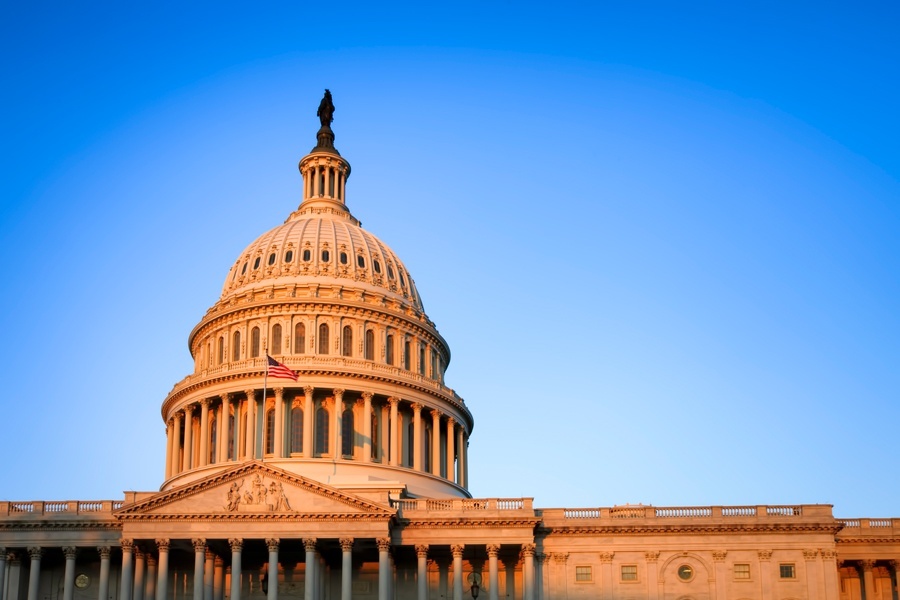

It may only be a bill about digitally delivering financial information, but at least it’s a step in a bipartisan direction. Sens. Thom Tillis, R-N.C., and John Hickenlooper, D-Colo., introduced the measure, Improving Disclosure for Investors Act of 2024, in the Senate Thursday. The bipartisan legislation, which has already been introduced in the House, requires the Securities and Exchange Commission to propose new rules allowing for the electronic delivery of regulatory documents to investors.
“U.S. capital markets have embraced the digital age and rely on far less paper now than they did 20 years ago, and it is past time that we bring disclosure requirements into the 21st century,” Sen. Tillis said in a statement. “This commonsense legislation will heighten efficiency and cut down on paper while preserving investors’ ability to receive hard copies.”
Sen. Hickenlooper echoed Tillis’ comments from across the aisle, saying, “Today’s economy runs in the digital age, and we need to catch up. Cutting red tape is as simple as going paperless.”
The SEC currently permits electronic delivery of certain documents, subject to requirements that a registrant provides notice that the information is available electronically, the investor has adequate access to such information, and the registrant either obtains evidence to show actual delivery or obtains informed consent from the investor. In other words, there's an “opt-in” requirement.
That said, the SEC has not seriously updated this framework in over two decades. The legislation introduced into the Senate this week requires the SEC establish a means for investors to “opt out” of electronic delivery at any time and receive paper documents.
Jonathan Swanburg, president of TSA Wealth Management, calls this legislation “a step in the right direction.”
“Ninety-nine percent of our clients that receive large stacks of physical paper simply move them from the mailbox to the trash can,” he said. “Eliminating unnecessary shipping and printing expenses will help lower the administrative costs, which will hopefully continue to push down costs for the consumer while reducing waste.”
Swanburg’s opinion was reinforced this week by a number of financial industry giants, including Fidelity Investments, which commended the two senators for trying to reform the SEC's default communications by going from paper to paperless.
“In the 21st century, American investors deserve a more engaging, secure, and timely standard to receive information in line with digital-first policies at the Department of Labor, Thrift Savings Plan, Social Security Administration, and Internal Revenue Service,” Fidelity said in a statement.
Similarly, Charles Schwab said, “Default e-delivery is long overdue, as a large majority of investors prefer the speed and convenience of receiving documents electronically. E-delivery allows Schwab to deliver our products at lower cost, avoids waste, and is environmentally friendly.”
Elsewhere in and around Washington, the Investment Company Institute and SIFMA also voiced their pleasure at the proposed digital plan.
The ICI applauded the Senators for “furthering the legislation in the interest of investors.” SIFMA, meanwhile, called the bipartisan maneuver “a natural next step in modernizing the SEC’s framework in light of changing investor preferences and technology.”
Last April, the House Financial Services Committee approved the Improving Disclosure for Investors Act, which requires the SEC to write a rule that permits registered investment companies, broker-dealers, investment advisors and other financial entities to deliver investor communications automatically via email. The House's approval came over the objection of Rep. Maxine Waters, D-Calif., the ranking member of the committee , who called the bill unfair to seniors who are not tech savvy.
Steve Stanganelli, certified financial planner at Clear View Wealth Advisors, applauds the sentiment of this initiative, but also has reservations.
“I have a concern that many people lack digital security in place or can’t keep track of their login credentials or forget what they have," Stanganelli said. "So I’m afraid that making this change will simply check the box for ‘disclosure’ to a client who will not see, much less read them.”

Bank of America gains strength in NY a veteran UHNW advisor while RayJay welcomes a three-decade industry veteran in Georgia.

A decline in bullishness across Wall Street has not stifled financial innovation in the ETF industry, with scores of new funds minted including leveraged and exotic bets.

China may suspend some tariffs on US goods.

Shares up 5% in premarket trading following stronger results.

Trump policies mean finding new ways to gain from low-carbon bets.
RIAs face rising regulatory pressure in 2025. Forward-looking firms are responding with embedded technology, not more paperwork.
As inheritances are set to reshape client portfolios and next-gen heirs demand digital-first experiences, firms are retooling their wealth tech stacks and succession models in real time.
